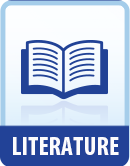|
This section contains 1,443 words (approx. 5 pages at 300 words per page) |

|
The introduction of new engineering accreditation criteria that includes "an understanding of professional and ethical responsibility" has firmly established the teaching of ethics as an important component of undergraduate education (Engineering Accreditation commission 2003, Herket 2002) yet, in establishing this outcome criterion, the commission also required its assessment. This is a particularly challenging proposition because ethics education is concerned not only with learning content but equally important, with developing problem solving skills. Further, such problems, or dilemmas, are rarely clear-cut and consequently do not have a definitive resolution, making traditional forms of assessment of limited value. One promising approach to this challenge is the development and use of scoring rubrics, a process that has been used for a broad range of subjects when a judgment of quality is required (Brookhart 1999). As opposed to checklists, a rubric is a descriptive scoring scheme that guides the analysis of...
|
This section contains 1,443 words (approx. 5 pages at 300 words per page) |

|


